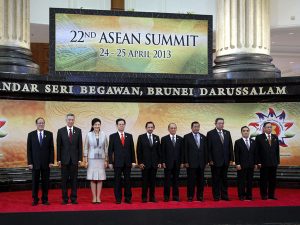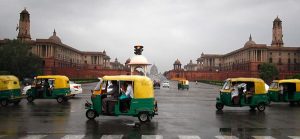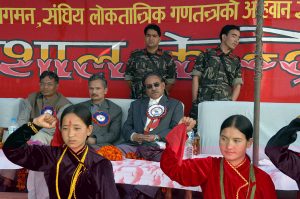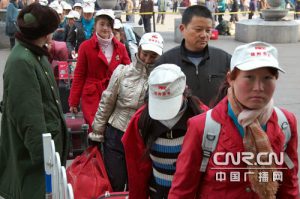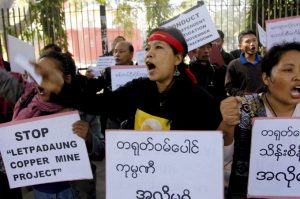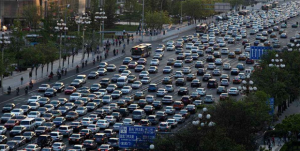Gratin on the Noodle Bowl? New ASEAN Investment Agreement Promotes Regional Economic Integration
National ministers, Association of Southeast Asian Nations (ASEAN) officials, and managers of regional and foreign multinationals as well as representatives of small and medium enterprises in the region marked the entry into force of the ASEAN Comprehensive Investment Agreement (ACIA) with a day-long event in Kuala Lumpur this April.
China and the Global Order (Video Interview with Professor Rosemary Foot)
Chinese conceptions of global order are neither well defined nor agreed upon. Many Chinese intellectuals debate what Chinese preferences should be regarding a global order, and the future role of China within it. These scholars are putting forward new ideas often based on Confucianism or Chinese historical experience. However, this academic debate is not reflected in government statements or policy. We see no clear promotion of a coherent concept of a global order, differing from what we currently see, articulated by the Chinese government. What is clear is that China seeks more voice and more representation. Issues such as G20 membership are increasingly important to China. There may be revisions around the edges of Chinese global preferences, but China overall is not demonstrating that it is a dissatisfied power.
Journalism in China: Impacting Policy in a Changing Media Landscape (Video Interview with Melissa Chan)
Currently a John S. Knight Journalism Fellow at Stanford University, and former China correspondent for Al Jazeera, journalist Melissa Chan discusses the changing media landscape in China and the role played by foreign correspondents.
Amid Concern about Women’s Safety, New Delhi Seeks Female Auto-rickshaw Drivers
The gang rape of a young woman in a bus in New Delhi last December sparked a national debate about women’s safety on India’s public transport systems. The New Delhi Transport Department responded by reserving 1,000 corporate auto-rickshaw permits for female drivers in the hope of making autos safer for female passengers.
Unsettled Remains: Tensions over Unrepatriated Bodies from the Asia-Pacific War
The “remains issue” (ikotsu mondai) refers to controversies surrounding the bodily remains of Korean and Chinese nationals who died during the Asia-Pacific War in Japan and whose bodies have not yet been repatriated. Most were conscripts: soldiers, military personnel and forced labourers. After the War, the remains of Chinese forced labourers were largely repatriated to the bereaved families, but it is estimated that as many as two thousand Korean bodies may still be stored at temples and buried across the country.
Nepal Communications Shutdown: A Factor in Monarchy’s Demise?
Communication in the mountainous country of Nepal has always been difficult, until the advent of the mobile phones. Of the country’s 28.5 million residents, 46% used mobile phones in 2011, a 61% increase from the year before. So what would happen if the government decided to shut down phone service?
Gender and Ethnic Tensions in Western China
The March 2013 sentencing of 20 Uyghur men in Xinjiang, China, on terrorism- and separatism- related charges highlights ongoing frictions in China’s far west. Amid China’s media censorship and practice of conflating some peaceful resistance or ordinary crimes with terrorist activities, full details of these events remain unknown. What is clear is the persistence of ethnic tensions, also illustrated during protests and riots in the region in 2009.
The Politics of Mining in Mongolia and Burma/Myanmar
Protests against mining projects reveal contrasts in the political impact of resource extraction in Mongolia, an established 23 year-old democracy, and Burma/Myanmar, a liberalizing authoritarian state. Two similarities are apparent in the domestic tensions surrounding Mongolia’s Oyu Tolgoi and Burma’s Letpadaung copper mines: both governments and populations are keen to balance Chinese influence in their economies; and both struggle to balance development goals with local grievances. Yet, the differing role of the countries’ politicians means that the protests have different outcomes.
Lotteries vs. Auctions: China’s Experiments in Managing Automobile Growth
The astronomical growth in the number of private cars in China has led to very visible environmental crises and congestion. But the nationwide increase conceals crucial policy differences between cities that influence effectiveness, revenue, efficiency, equity and public acceptance. While Shanghai and Beijing each had approximately 2 million motor vehicles in 2004, by 2010 Beijing had 4.8 million versus Shanghai’s 3.1 million. By 2011, 38% of Beijing households were vehicle owners in contrast to 18% in Shanghai. Two decades ago Shanghai opted for a monthly license auction to control vehicle ownership, while Beijing had few controls over usage or ownership until the run up to the 2008 Olympics.
Island Connect in the Tuamotus: Satellite, Solar Power and Civil Society
Despite their isolation, technological developments allow residents of Katiu, a tiny coral atoll in the Tuamotu Archipelago of French Polynesia, to engage as global citizens. The atoll is only 10 square km, 27 km long and 12.5 km wide. Its 286 residents subsist on fishing, copra harvesting and pearl farming. There is no tourism trade, and anything beyond coconut palms, breadfruit, taro, fish, seafood and some fruit must be imported on infrequent cargo ships. Until recently, the atoll was inaccessible except by boat, and islanders had limited communications with the outside world.
